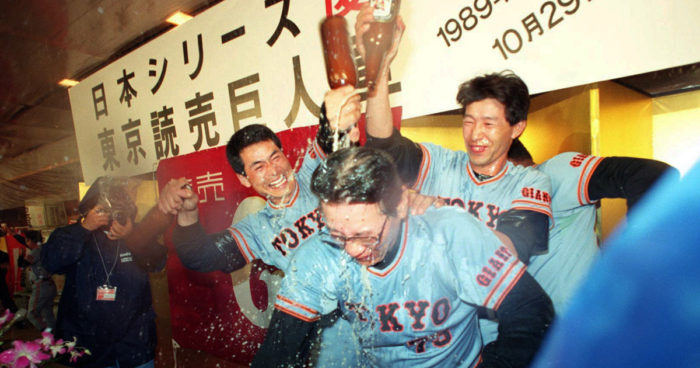Published 13/2/2019 in Newsweek Japan “Heisei Mook” (magazine-cum-book)
When we look up at the stars, we see constellations. When we look back at the past, we see stories. In retrospect, eras and decades seem to have a pattern that was not apparent at the time.
So it is with the Heisei era, now about to end. In my mind, it has a clear shape to it – the shape of the Nikkei Index of stock prices. It was uncanny how the stock market action seemed to predict economic, social and political events to come.
By coincidence, it was at the very beginning of the Heisei era – in March 1989 – that I started writing for Newsweek Japan. It was the last, giddiest phase of the bubble economy and the mood of euphoria and excess was overpowering.
I duly made my own tiny contribution. I danced at Juliana’s cavernous disco. I sprinkled gold flake on sushi and sake. I dined at a “no panties” shabu-shabu restaurant that was later to feature in a major financial scandal.
At the time, Japan accounted for over 50% of global stock market capitalization, an absurd over-valuation. But the bubble was as much intellectual and psychological as financial. It was widely believed, at home and abroad, that Japan was now “number one.” Business Week chose as one of its books of the year a work that claimed that Japan would exceed the US in economic scale by the year 2000.
For reference, today Japan’s stock market value is roughly 8% of the global total and the US economy is more than four times the size of Japan’s.
My first two pieces were about the Recruit affair, which seemed mysterious at the time. Much later I read Where is the Justice? the memoir of Hiromasa Ezoe, founder and boss of Recruit. In retrospect, the real scandal was the unjust treatment he suffered from the legal system and the political establishment.
My third column, in March 1990, was entitled “An End to Japanese Financial Alchemy.” By this stage, it was clear the bubble was on the verge of collapsing and that a plunge in real estate values would have devastating consequences. I was one of the more pessimistic observers, but I never imagined that the process of “normalization” would take so long.
“Two lost decades” is not an entirely accurate description of the period. Plenty happened – two banking crises, soaring bankruptcies, the rise of part-time workers, the killings by Aum cultists, the Kobe earthquake, the collapse of the myths of the “middle class nation”, bureaucratic wisdom and lifetime employment.
Euphoric hedonism was succeeded by utter despair, as revealed in the 50% surge in suicides over a dozen years. Meanwhile, a series of prime ministers quickly came and went like karaoke singers taking their turn at the microphone.
Disillusionment taken too far can be another form of illusion, a comfortable consensus that ignores contrary evidence. Looking back from today, I am struck by what did not happen in the lost decades.
Japan did not resort to protectionism; rather, it was slowly opening up. There was no populist political movement, no street violence as exemplified by France’s recent “gilets jaunes” demonstrations. Gradually, the corporate sector was eroding its “three excesses” of debt, productive capacity and labour and profit margins were rising from ultra-low levels. Companies and individuals were becoming more realistic and resilient.
The proof has come in the final decade of the Heisei era. The triple disaster of March 2011 shocked the world, yet the response of ordinary citizens confirmed the strength of Japan’s social capital. Over the past six years, GDP growth per capita has been above the average for developed countries. Japan will never match the US and China in economic scale, but ingenuity, hard work in and healthy competition will ensure that living standards rise.
Today, Japan is the linchpin of the Trans Pacific Partnership and the global leader in coping with the challenges of an ageing society. As for the social mood, the number of suicides has fallen to the lowest in 25 years.
Japan is in a much better place to deal with future uncertainties than thirty years ago. The new, as-yet-unnamed era that opens this year will base itself not on complacent myths, but gritty realities.


